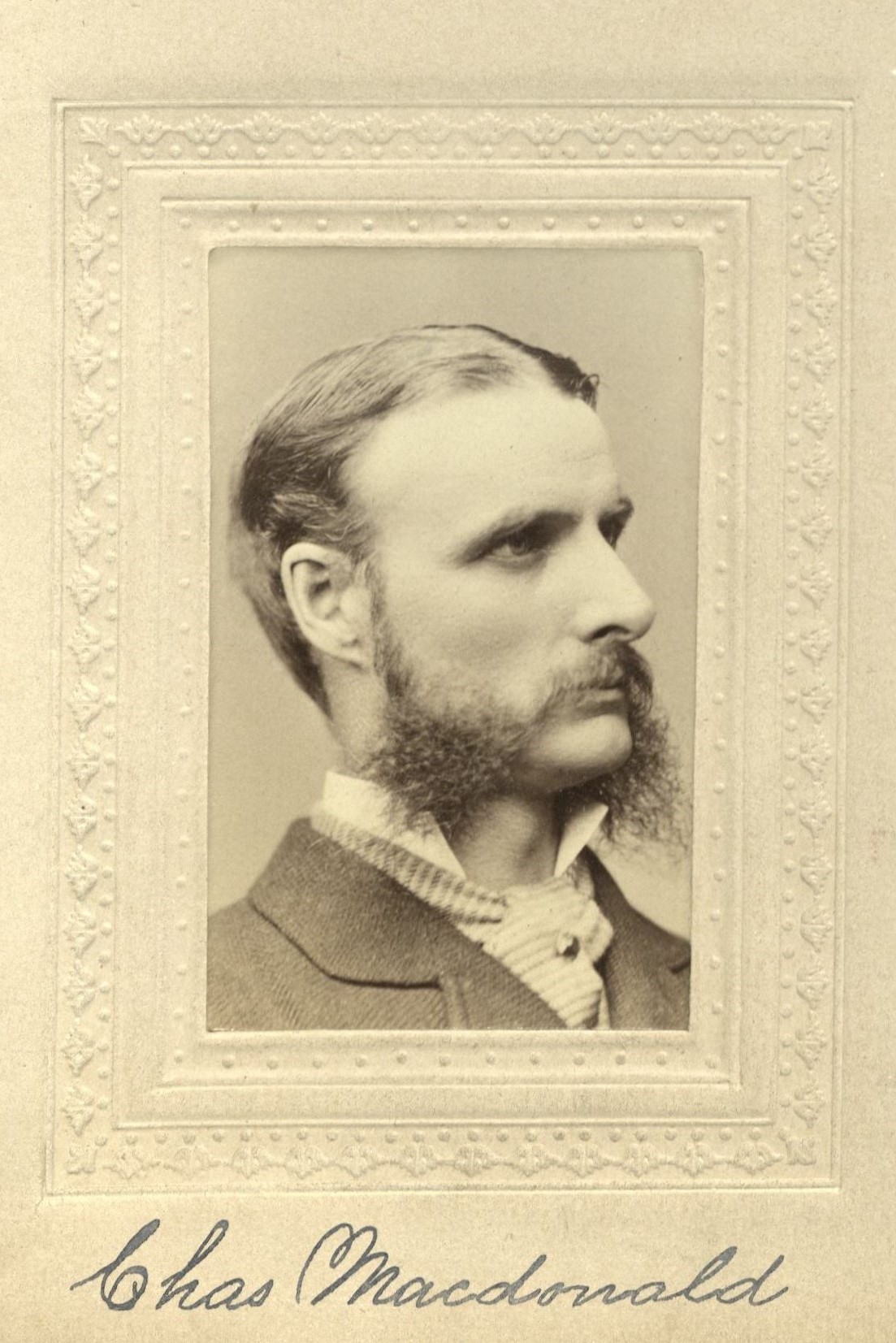Civil Engineer
Centurion, 1878–1928
Born 26 January 1837 in Gananoque, Ontario, Canada
Died 8 July 1928 in Gananoque, Ontario, Canada
Buried Willowbank Cemetery , Gananoque, Ontario, Canada
, Gananoque, Ontario, Canada
Proposed by Octave Chanute and Alexander L. Holley
Elected 1 June 1878 at age forty-one
Proposer of:
Century Memorials
The names which have ceased to appear on our list, ranged in the order of seniority of membership are those of William Kemble, John A. Appleton, Wm. Tracy, Edwin W. Stoughton, Richard H. Bowne, Edward Delano, Francis T. Walker, Chas. H. Rogers, Chas. T. Blake, H. F. Vail, Alanson S. Jones, Samuel B. Ruggles, Edward A. Washburn, John Carey, Jr., Alexander Major and Samuel W. Johnson.
Augustus R. Macdonough
1882 Century Association Reports
It is not given to many human beings to survey in personal recollection nearly a century of their country’s industrial development, to which their own constructive genius had actively contributed. The Century knew Charles Macdonald as one of the striking personalities at the dinner table in his occasional visits; it will long remember his tall and dignified figure with the piercing eyes, the eagle-like physiognomy and the flowing Dundreary whiskers of another era. Macdonald belonged as much to that other era as to the present day; he also belonged throughout his active life to two different countries. It was less than twenty-five years after the United States fought Canada in 1812 that Macdonald was born in the Canadian village where he afterward spent the evening of his life. He was one of the surveyors of the Canadian Grand Trunk Railway’s first extension in 1853, and in the fifty ensuing years won a notable place among the bridge-builders who opened the way for the transportation lines that spanned the continent. His own reminiscence of the penetration of the wilderness by these pioneers—sleeping in tents, hewing their way through virgin forests, and living on wild game— pictured a long past epoch of American civilization.
Macdonald’s activities stretched beyond the national boundary. He spanned Australian and South African rivers, had a hand in building the first “Brooklyn Bridge” and the Poughkeepsie Bridge across the Hudson, and so closely identified himself with the political and social fortunes of the Northern United States that he left an engineering job in Pennsylvania during 1863 to shoulder a musket with the regiments that stood in the path of Lee’s invasion. From first to last a forward-looking enthusiast, a robust believer in the future of America, he told his friends on his ninetieth birthday that he had no retrospective regrets for the good old times that were gone. The present day was to him the greatest period of history in which one would have wished to live, and the forerunner of something better and greater.
Alexander Dana Noyes
1929 Century Association Yearbook

